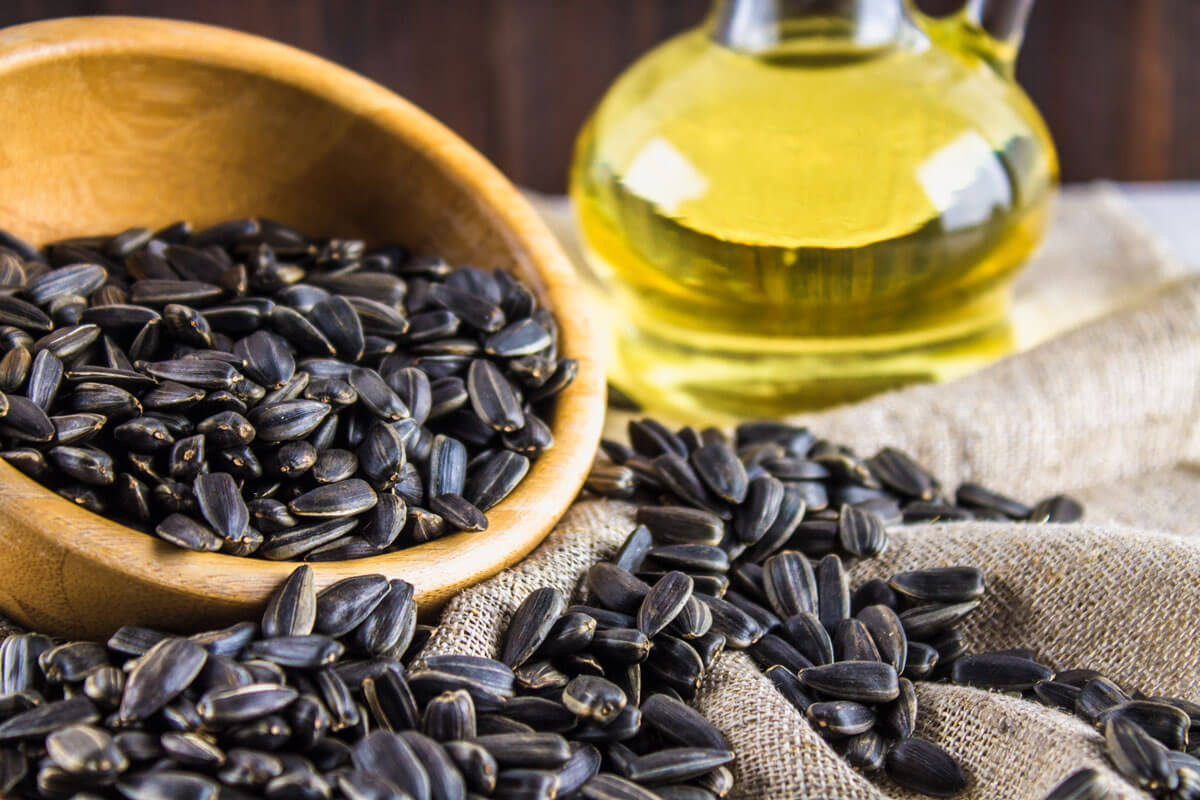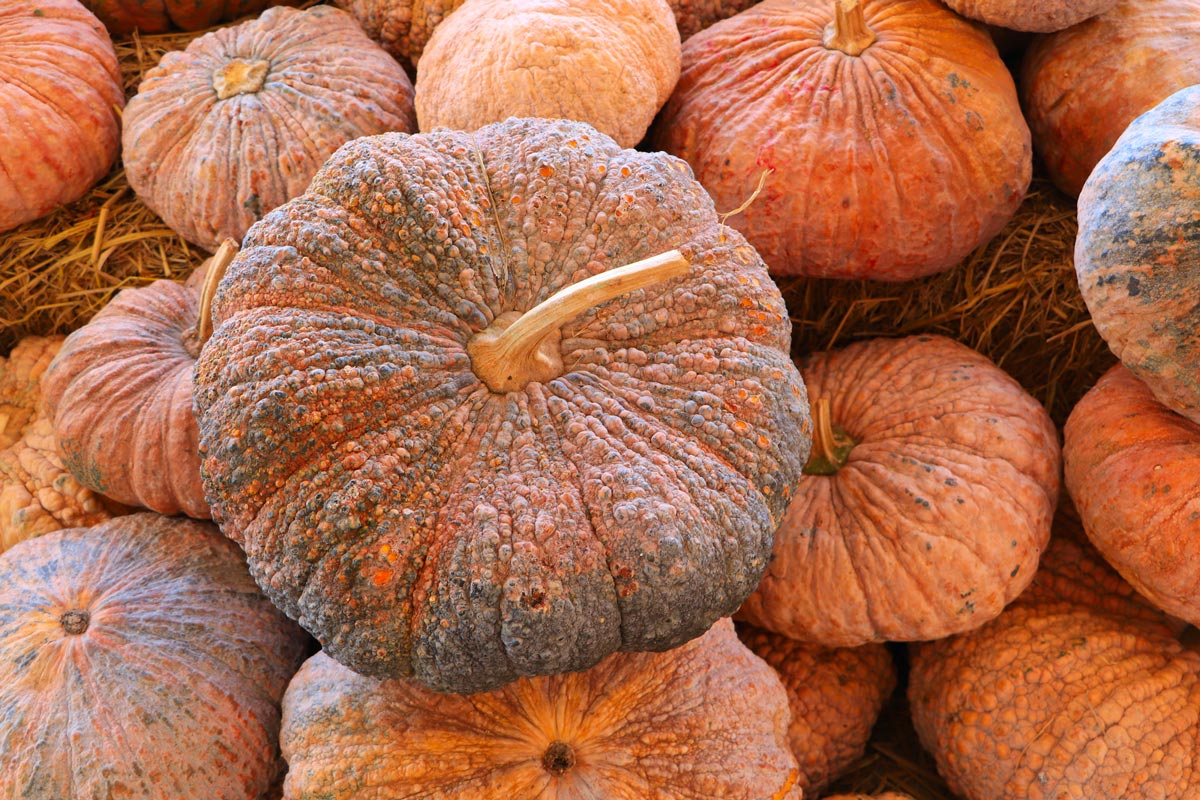Learn the basics of pressing seed oils at home to have a sustainable source of fat for your family. We homesteaders like to be self-sufficient, but unless you raise pigs (for lard) or a dairy cow (to make butter), chances are you aren’t producing a lot of fat sources on your homestead.
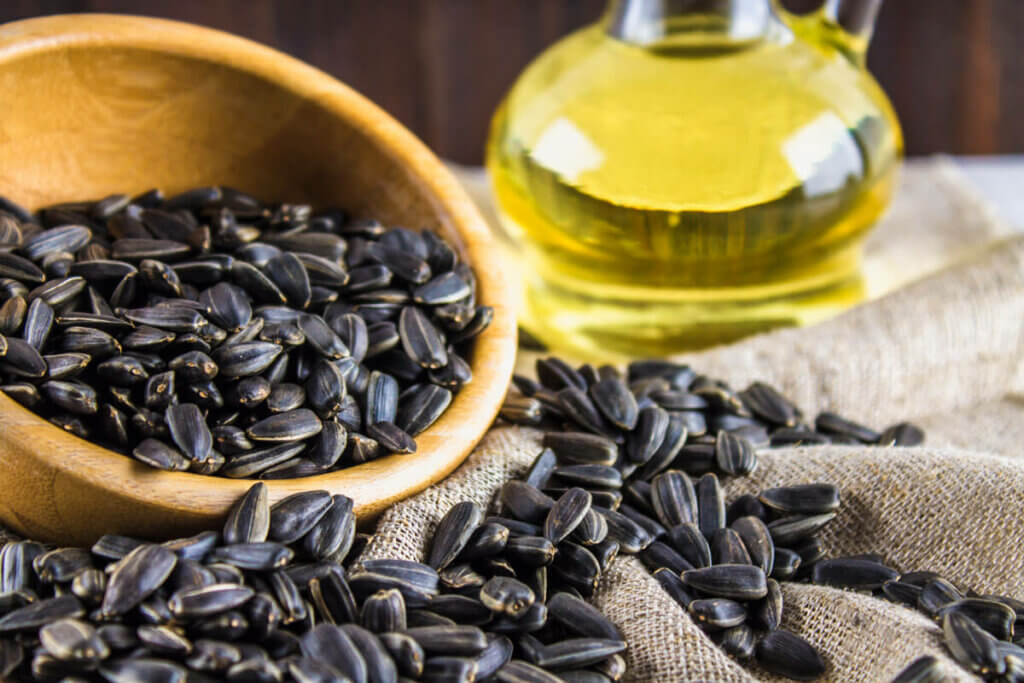
I didn’t realize I could make seed and nut oils at home until I chatted with Bevin Cohen.
Natural Remedies Made Simple

Start your home apothecary with confidence—even if you’re brand new. Learn how to choose the right herbs for your body using the simple principles of herbal energetics.
Discover how warming, cooling, drying, and moistening herbs affect your body—so you can stop guessing and start making remedies that actually work.
In today’s podcast (episode #399), we’ll be discussing the versatility of different seeds and nuts, whether seed oils are inflammatory and something we shouldn’t be eating, how to get started pressing seed oils at home, how much it costs to press seed oils at home, and the best seeds and/or nuts to start growing to make your own seed oils.
This is one jam-packed episode, so be sure to read through the blog post for more information and any links mentioned.

Table of Contents[Hide][Show]
About Bevin Cohen
Bevin and his wife live on a small-acreage homestead in Michigan. He is the author of many books, including The Complete Guide to Seed and Nut Oils: Growing, Foraging and Pressing, as well as The Artisan Herbalist and Saving Our Seeds – The Practice & Philosophy.
Bevin got started pressing seed oils over ten years ago as a way to be able to produce staple foods for his family.
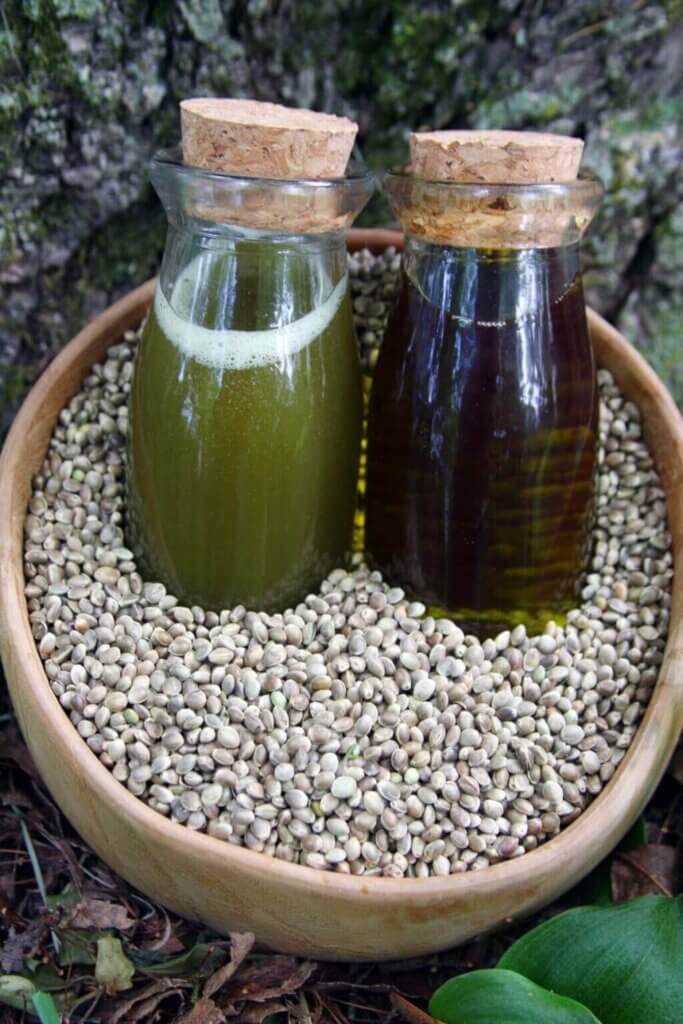
The History of Seed Oils
Pressing oils isn’t something new. Olive oil was mentioned in the bible, mustard seeds have been pressed in India for over 4,000 years, and flaxseeds have been pressed in Syria, tracing back over 5,000 years.
The Health of Seed Oils
Seed oils have gotten a bad rap online in the health and wellness world. Bevin shares that while there’s a lot of good that comes from the internet, it can also spread a lot of misinformation quickly.
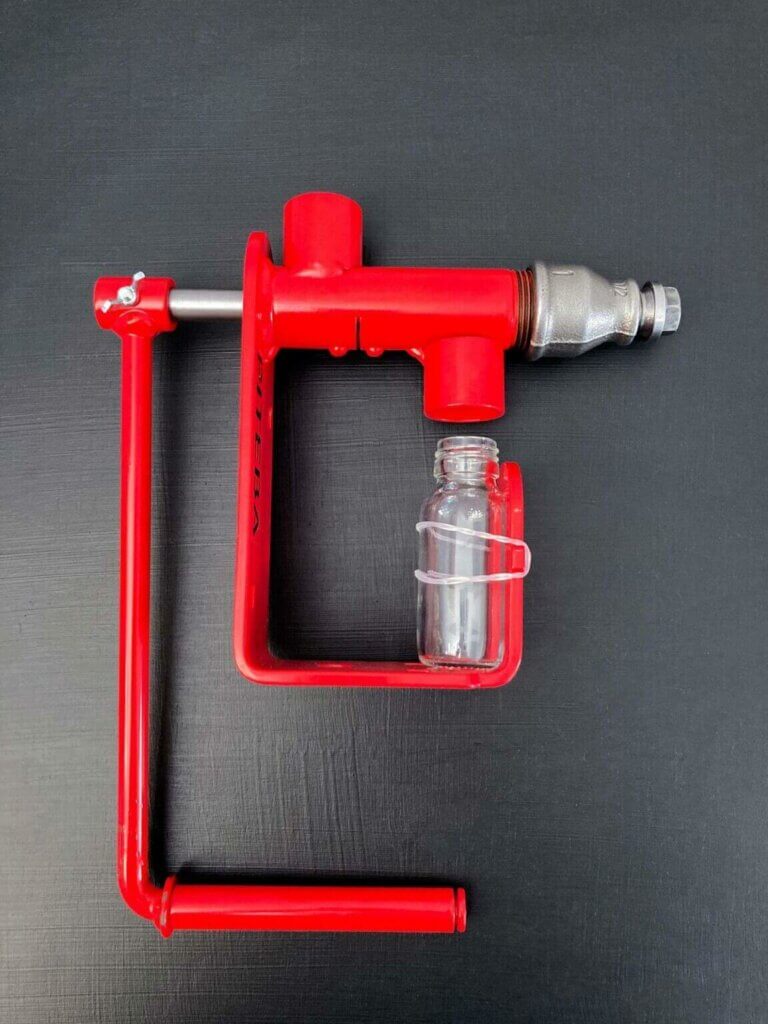
Extraction Process
The truth is seed oils that you find at the grocery store that have been mass-produced inherently make them unhealthy for us to consume. In order for these seed oils to be produced, they’re chemically extracted using hexane (which is just a couple of molecules away from being gasoline).
They then go through an extensive process of bleaching, deodorizing and degumming to stabilize the oils for the grocery store shelf.
But that doesn’t mean that all seed and nut oils are unhealthy! This process is very different than the home seed and nut oil presses that we’re discussing today.
Omega 3:6 Ratio
The other health issue is the Omega 3:6 ratio inside these oils. Truth be told, the majority of the oils in our Standard American Diet come from either store-bought oils or in the form of processed foods (containing unhealthy, chemically produced corn oils, soybean oils, etc.).
It’s from these foods that we get the scare of inflammation and all the health risks that come with it.
When thinking about home-pressed seed and nut oils and their grocery-store counterparts, it’s not comparing apples to apples. They may as well be two completely different foods.
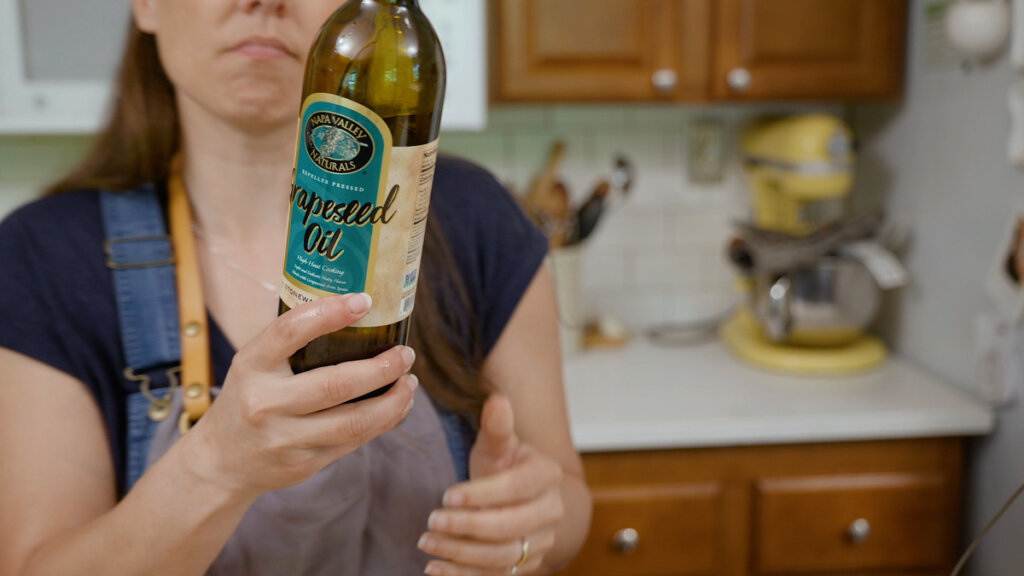
Discerning Labels
If you don’t yet have an oil press and you’re still buying oils from the grocery store, I asked Bevin to explain what to look for on the labels of the seed or nut oils we may find.
Cold-Pressed Oils
Cold-pressed or cold-processed means the oil was extracted at a low-temperature threshold, usually below 175°F. This process retains the nutritional qualities of the oil and helps extend the shelf life in a natural way because it’s not exposed to heat.
Expeller-Pressed Oils
This is the least-profitable way to sell oils, but it’s the highest quality oil you will get (and you’ll see that reflected in the price). This expeller-pressed method uses pressure to squeeze out the oils from the seeds or nuts.
Chemically Processed
Oils that have been through the chemical processes of extracting, bleaching, deodorizing and degumming likely won’t have any fancy labels touting their special extraction processes (because, quite frankly, they don’t want you to know!).
These oils are very profitable for companies and can sit on the grocery store shelf for months and months without going rancid.
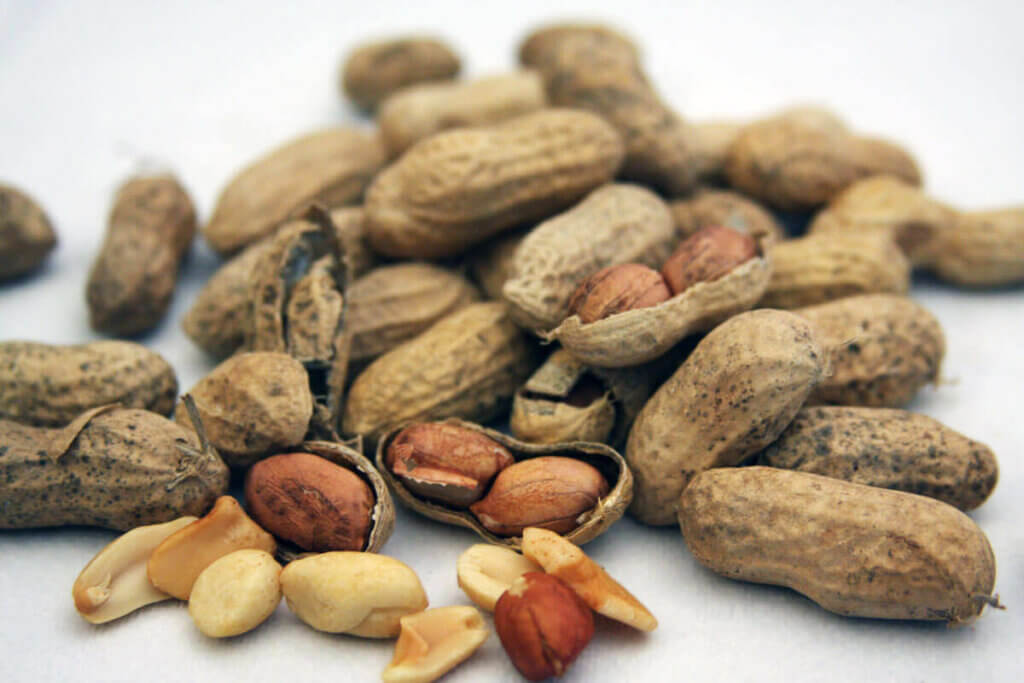
How to Press Seed & Nut Oils for a Year
Many of us homesteaders have our mindset on bringing in food for a year at a time. We like to butcher our cows and put up all our cuts of beef for the year. We raise and butcher meat chickens to stock our freezer for the year. Also, we grow a year’s worth of food in our gardens and then put up our home-canned tomato sauce for a year. Everything we do is in this “one and done” kind of mindset.
However, when it comes to pressing seed and nut oils, this isn’t how our mindset should be… at least not completely.
Bevin recommends purchasing the seeds or nuts in their hull or shell and storing those for as long as is best for the specific seed or nut. Then, you press a week’s worth of oil at a time.
Our mindset needs to be more like stocking our pantry with whole grains to grind into flour for our weekly baking session.
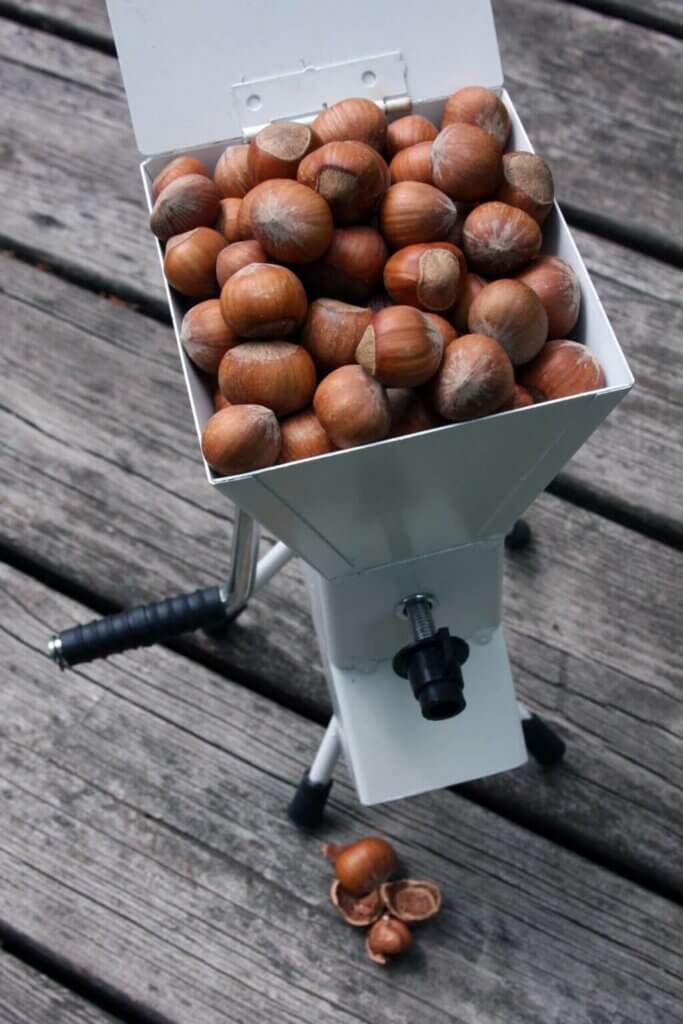
The Cost of Pressing Oils at Home
The hand-turned oil press that Bevin recommends costs roughly $200. It’s a very simple machine with only a few parts and is very easy to use.
From there, you need to get your seeds and nuts. Whether you’re going to forage for them, grow them or buy them. Plus, a food-grade bucket to store the seeds.
That’s it!
Electric Options
There are electric seed presses that you can purchase if you’re pressing larger amounts (say for selling at a Farmer’s Market). They are more expensive, and after using both the hand-turn and electric press, Bevin prefers the hand-turn press set up so his bicycle can power it. He even has instructions for how to do this in his book.
But for the home-use, using the simple hand crank will be sufficient to press a week’s worth of oil at a time.

How Many Seeds Do I Need?
You may be wondering just how many seeds or nuts you’ll need in order to press enough for your family for the year.
This will vary from seed to seed and nut to nut. Peanuts, for example, are very oily nuts, containing upwards of 40-45% oil. Bevin shared that with just ten pounds of peanuts, you can easily press a gallon of peanut oil.
If you want to extract even more oil, you can warm the seeds or nuts up before pressing them.
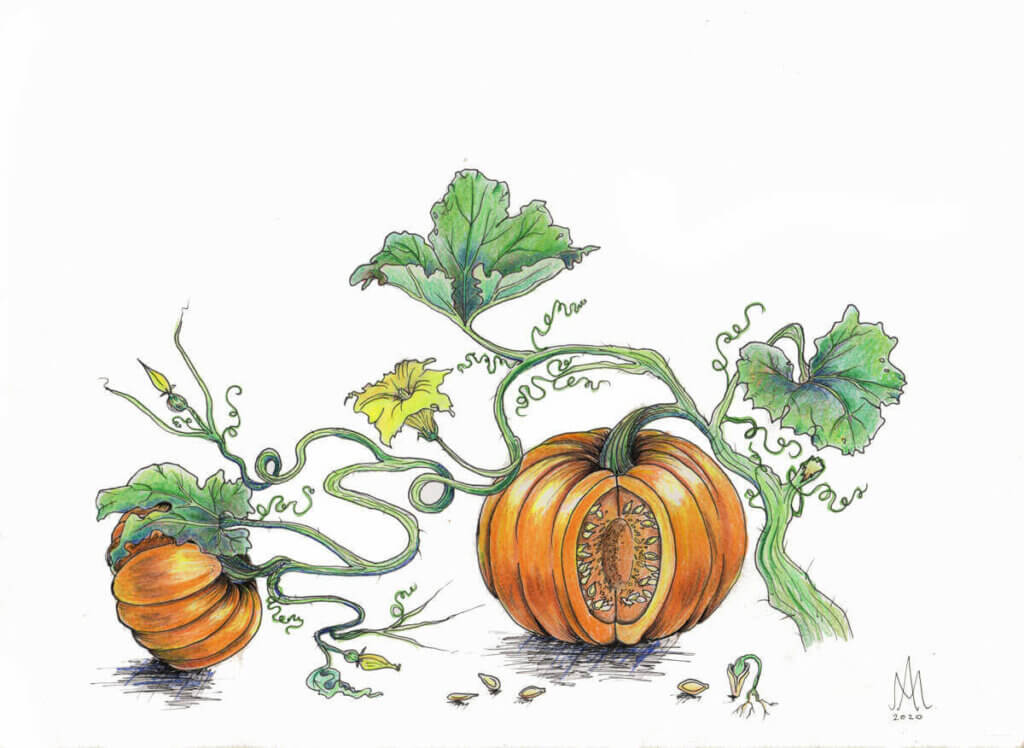
Types of Seeds & Nuts
Different seeds and nuts will all have varying flavor profiles to their oils, and you can change this even further by roasting or toasting the nuts or seeds first. Some of Bevin’s favorites are toasted peanut oil and toasted sesame seed oil.
There are so many nuts and seeds that can be pressed into oils at home:
- Hemp Seed – Hemp seeds are 35-40% oil. Hemp seeds are convenient because you can press them in the shell.
- Flax Seed – A very nutritious seed for pressing into an oil. You don’t need to shell them before pressing.
- Sunflower Seed – Sunflower seeds are 30-35% oil. This is a great option for growing at home as sunflowers tend to grow well in many climates. This is also an oil high in vitamin E and Bevin likes to use this oil topically. All sunflower seeds can be made into oils, but they will have varying flavor profiles.
- Sesame Seed – If you can grow sesame seeds, this is another great home-option.
- Pumpkin Seed (or other squash) – Another great option for the home gardener. Grow a large crop of pumpkins, turn the flesh into canned pumpkin and scrape out the seeds to dry and press into pumpkin seed oil.
- Peanuts – Did you know the byproduct of making peanut oil is peanut butter? What a great two-fer! And, as mentioned, peanuts are 40-45% oil so your oil yield will be quite high. Peanut oil is great for high-heat cooking.
- Walnuts & Hazelnuts – If you find yourself with a walnut or hazelnut tree on your property, you’ll now know exactly what to do with all those nuts!
- Grapeseed Oil – Grapeseed oil is made from seeds leftover after the grapes have been turned into wine.
I asked Bevin, if he could only press one seed into oil which would it be. His recommendation was sunflowers. It’s the only seed that can grow to a plant to a seed and back to a plant from the seed, and it grows in most conditions.
Not many people know that black oil sunflower seeds for birds is one of the highest-yielding oils for sunflower seeds! It’s one of the best seeds you can run through your oil press.
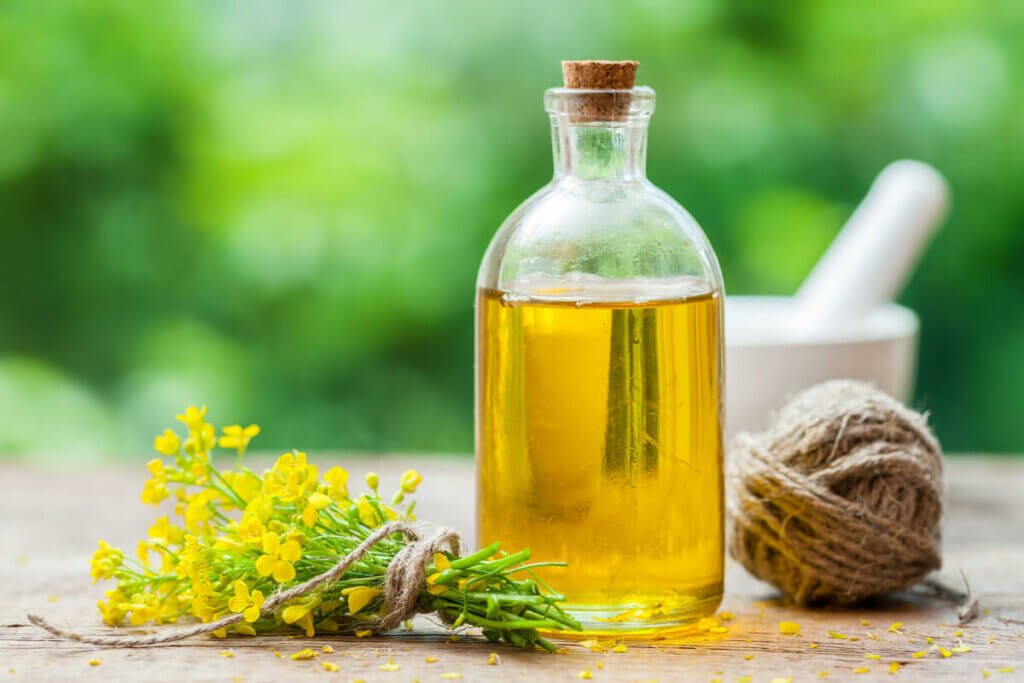
What About Canola Oil?
Though not a nut or seed, I asked Bevin his take on the health of canola oil. Canola oil is one of the vegetable oils that has the worst rap of them all.
Bevin shared that canola oil isn’t a vegetable oil at all! It comes from the rapeseed plant which is a close relative to a radish (it’s in the Brassica family).
When rapeseed was first discovered, the oil from the seeds wasn’t safe to consume because it was too high in acid. A company in Canada worked to modify the plant until it was safe for consumption. However, they assumed no one would want to purchase an oil called rapeseed oil, so they came up with the name Canola (Made in Canadian, it’s an oil and it’s low acid).
You can find non-GMO canola seeds today that you could grow at home. However, it does take a lot of space to grow.

Oil Shelf-Life
The shelf-life of oils will vary depending on the seed or nut. Each seed oil contains different long and short-chain fatty acids, which will affect its shelf stability.
In Bevin’s book, he talks about how to store each different type of oil to maximize the shelf-life of the oil.
However, Bevin takes this one step further in sharing that the shelf-life of the oil isn’t what’s important at all; it’s the shelf-life of the seed or nut before it’s been pressed.
Drawbacks of Pressing Your Own Oil
As with anything, there will be some drawbacks of pressing your own seed and nut oils. Right off the bat we can list the price of the equipment, the price of the nuts/seeds and the time it will take to process them.
Bevin came up with some additional drawbacks:
- Source the seeds or nuts (growing or purchasing).
- The tiring motion of turning the press for certain seeds (this is more for large-scale productions).
- You will soon know just how much better home-pressed oils taste compared to store-bought. It’s like tasting a homegrown tomato vs. a store-bought tomato. There’s just no comparison.
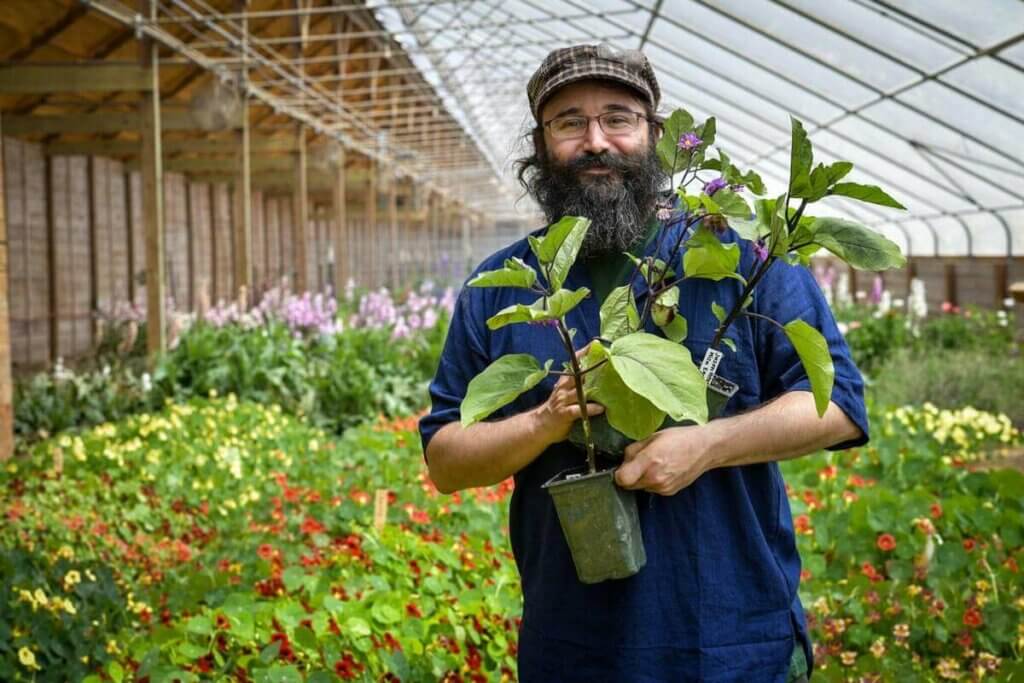
Where to Find Bevin
Connect with Bevin on his website Small House Farm, and check him out on social media at the following places:
Verse of the Week: Philippians 4:2 & 8
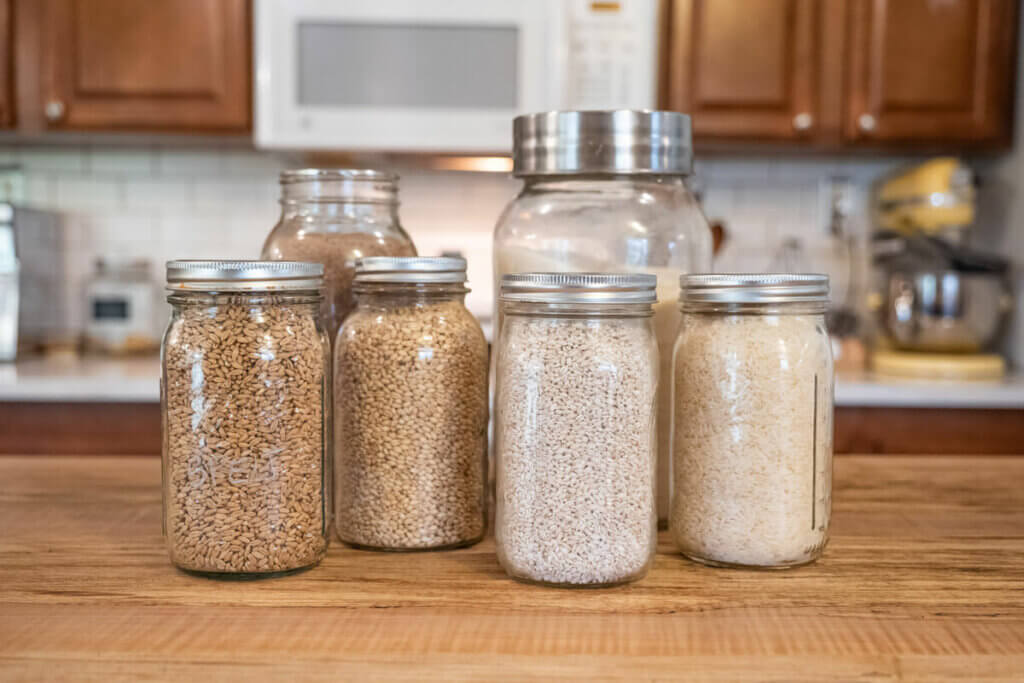
More Posts You May Enjoy
- 13 Healthy Ingredients to Swap Out Now
- Our Broken Food System
- How to Heal Stomach Acid Naturally – My Story Part 1
- How to Find Your Trigger Foods – Part 2 of Healing Your Stomach Naturally
- What Happens to Your Body When You Eat Healthy & Cut Out Sugar
- 7 Signs You Suffer From Thyroid Disease
- Thyroid, Adrenal Glands & Hormone Health
- What is A2 Milk & What are the Benefits?
- Rebekah Rhodes’ Journey with Auto-Immune Disease
- Unplugging for One Year with Rory Feek
[fusebox_transcript]
